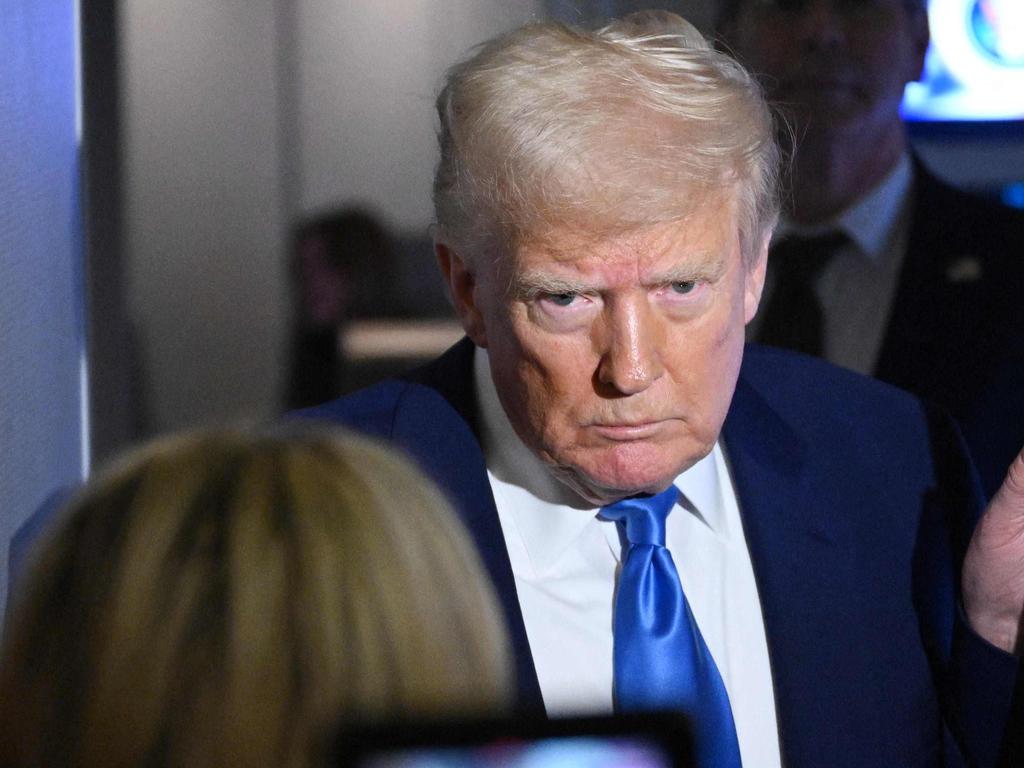Wall Street starts to speak out against Trump’s tariffs
After a three-day market meltdown, even financiers who have been vocal supporters of Donald Trump are warning the US may already be in recession as an ‘economic nuclear winter’ nears.
In public and private, the big names of high finance are trying to get a message across to President Trump: stop the madness.
For weeks, as the contours of Trump’s sweeping tariff plans came in and out of focus, Wall Street’s leaders kept any concerns they had to themselves. Now, after a three-day market meltdown that has erased trillions of dollars in value from US stocks, some are speaking out, including those who have been vocal supporters of Trump.
Bill Ackman, the billionaire hedge-fund manager behind Pershing Square, called for a 90-day pause in the tariffs to negotiate with other countries, warning that the alternative was “a self-induced, economic nuclear winter.”
“We are in the process of destroying confidence in our country as a trading partner, as a place to do business, and as a market to invest capital,” Ackman wrote in a social-media post on X.
The formula used by the administration to calculate tariffs made other nations’ tariffs appear four times larger than they actually are.
— Bill Ackman (@BillAckman) April 7, 2025
President @realDonaldTrump is not an economist and therefore relies on his advisors to do these calculations so he can determine policy.… https://t.co/haPHKrxWOR
Across Wall Street and politics a growing number, including those who support tariffs in theory, were saying that the current plan is misguided and will cause irreparable damage. Some big bank CEOs and executives were feeling shut out and lectured at, some of them said.
Early Monday, they briefly appeared to have been heard when reports claimed Trump was considering a pause like Ackman suggested. Markets surged. Then stocks plunged again after the White House said it wasn’t considering any such pause.
US stocks were volatile and at one point were having their worst three-day stretch since 1987’s Black Monday, and global markets were routed overnight. The S & P 500 was down 2 per cent and has now lost more than 11 per cent this month.
Trump and his officials defended the plan over the weekend and said the country would benefit in the end, deflecting concerns about a recession.
“What’s going to happen to the markets, I can’t tell you,” Trump said late Sunday. “I don’t want anything to go down. But sometimes you have to take medicine to fix something.” On Monday morning, Trump’s trade adviser, Peter Navarro, dismissed worries about a recession and said the stock market would recover.
Outside of Wall Street, even Elon Musk has been critical, calling for a free-trade agreement between the US and Europe while criticising Navarro on X, slamming his “ego/brains.”
Sen. Ted Cruz (R., Texas) raised fears about the next election cycle, and more Republicans have been signing onto legislation that would allow Congress to remove tariffs with a simple majority vote.
The industry’s leading statesman, JPMorgan Chase Chief Executive Jamie Dimon, wrote in his annual letter Monday that he is concerned how Trump’s tariffs will affect America’s long-term economic alliances, which he said would weaken the country.
“Economics is the longtime glue, and America First is fine, as long as it doesn’t end up being America alone,” Dimon wrote.

Stan Druckenmiller, the well-respected investor and lifelong Republican who was Treasury Secretary Scott Bessent’s boss at George Soros’s hedge fund, sent a rare post on X, making clear his opposition to the administration’s tariff plan: “I do not support tariffs exceeding 10 per cent.”
He was joined in publicly criticising Trump’s plans by Howard Marks, co-chairman of investment firm Oaktree Capital, Dan Sundheim, the head of giant D1 Capital who rarely speaks out, and Third Point’s Dan Loeb.
In private, the talks weren’t going much better.
Bank CEOs including Dimon, Goldman Sachs’s David Solomon and Wells Fargo’s Charlie Scharf happened to be in Washington last week for an industry meeting when Trump unveiled his plan.
The executives met with Commerce Secretary Howard Lutnick, whose message was to get with the program on tariffs, according to people familiar with the discussion. The bank executives left frustrated.
“The conversation starts out with, listen, nothing’s going to change,” one of the people said.

Still, some financial executives have shared concerns about the tariffs with senior White House officials including chief of staff Susie Wiles, Vice President JD Vance, Bessent, and National Economic Council director Kevin Hassett, one person familiar with the discussions said. The Trump team was in listening mode for those conversations, the person said.
For much of the weekend, traders remained stunned at the extent of the tariffs unveiled by Trump, and by the market’s subsequent reaction.
“Liberation Day was a knock-down, drag-out affair,” Goldman Sachs’s Tony Pasquariello, who leads the firm’s hedge-fund coverage team, wrote to clients Saturday morning. “There was a harshness that surprised even the most hawkish people I know.”
Some financial executives held out hope that Republicans in Congress would exert pressure on the Trump administration to postpone tariffs on countries that are negotiating with the US to lower tariffs.
Others suggested that it was wrong to blame Trump for the deep losses of investors.
“While the Trump Administration is responsible for wringing the froth out of the market, it was not responsible for putting it in there,” argued Michael O’Rourke, chief market strategist at JonesTrading. “The Trump Administration’s policy approach has been well advertised since prior to the election.”
But many in finance were perplexed with indications over the weekend that some members of the administration didn’t seem especially concerned that stocks are getting hammered.
“We believe that Wall Street and Main Street prosper and suffer together, ” Ed Yardeni, founder of Yardeni Research, told clients in a note Sunday evening. “The Trump administration disagrees.”
Dow Jones






To join the conversation, please log in. Don't have an account? Register
Join the conversation, you are commenting as Logout